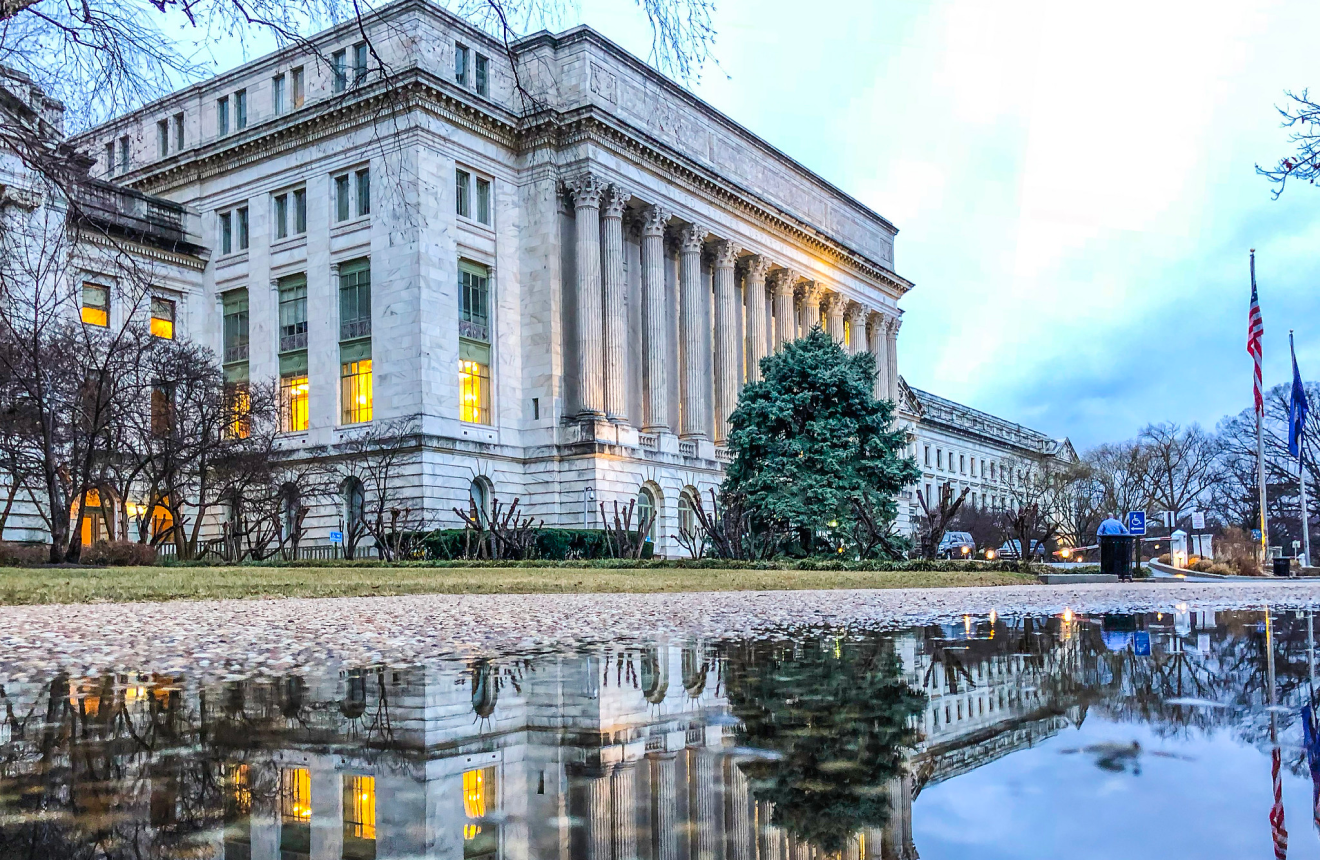About
Agencies
The U.S. Department of Agriculture (USDA) is made up of 29 agencies and offices with nearly 100,000 employees who serve the American people at more than 4,500 locations across the country and abroad.

AMS facilitates the strategic marketing of agricultural products in domestic and international markets while ensuring fair trading practices and promoting a competitive and efficient marketplace. AMS constantly works to develop new marketing services to increase customer satisfaction.
ARS is USDA's principal in-house research agency. ARS leads America towards a better future through agricultural research and information.
APHIS provides leadership in ensuring the health and care of animals and plants. The agency improves agricultural productivity and competitiveness and contributes to the national economy and the public health.
ERS is USDA's principal social science research agency. Each year, ERS communicates research results and socioeconomic indicators via briefings, analyses for policymakers and their staffs, market analysis updates, and major reports.
The Farm Service Agency implements agricultural policy, administers credit and loan programs, and manages conservation, commodity, disaster and farm marketing programs through a national network of offices.
FNS increases food security and reduces hunger in partnership with cooperating organizations by providing children and low-income people access to food, a healthy diet, and nutrition education in a manner that supports American agriculture and inspires public confidence.
FSIS enhances public health and well-being by protecting the public from foodborne illness and ensuring that the nation's meat, poultry and egg products are safe, wholesome, and correctly packaged.
FAS works to improve foreign market access for U.S. products. This USDA agency operates programs designed to build new markets and improve the competitive position of U.S. agriculture in the global marketplace.
FS sustains the health, diversity and productivity of the Nation's forests and grasslands to meet the needs of present and future generations.
The FPAC Business Center is a first-of-its-kind organization at USDA, combining the talent of employees from all three FPAC agencies into specialized teams that serve employees and customers across the Farm Service Agency (FSA), the Natural Resource Conservation Service (NRCS) and the Risk Management Agency (RMA).
NASS serves the basic agricultural and rural data needs of the country by providing objective, important and accurate statistical information and services to farmers, ranchers, agribusinesses and public officials. This data is vital to monitoring the ever-changing agricultural sector and carrying out farm policy.
NIFA’s mission is to invest in and advance agricultural research, education, and extension to solve societal challenges. NIFA’s investments in transformative science directly support the long-term prosperity and global preeminence of U.S. agriculture.
NRCS provides leadership in a partnership effort to help people conserve, maintain and improve our natural resources and environment.
RMA helps to ensure that farmers have the financial tools necessary to manage their agricultural risks. RMA provides coverage through the Federal Crop Insurance Corporation, which promotes national welfare by improving the economic stability of agriculture.
RD helps rural areas to develop and grow by offering Federal assistance that improves quality of life. RD targets communities in need and then empowers them with financial and technical resources.
RUS provides financing to build or improve infrastructure in rural communities. This includes water and waste treatment, electric power and telecommunications services. These services help expand economic opportunities and improve the quality of life for rural residents.
RHS offers a variety of programs to build or improve housing and essential community facilities in rural areas. RHS offers loans, grants and loan guarantees for single- and multi-family housing, child care centers, fire and police stations, hospitals, libraries, nursing homes, schools, first responder vehicles and equipment, housing for farm laborers and much more.
RBS offers programs to help businesses grow as well as job training for people living in rural areas. These programs help provide the capital, training, education and entrepreneurial skills that can help people living in rural areas start and grow businesses or find jobs in agricultural markets and in the bio-based economy.
Careers
Career Opportunities
USDA is proud to be ranked in the Top 10 Best Places to Work. We offer a variety of career opportunities, including pathway programs for students, and provide employment resources through our Office of Human Resources Management.

